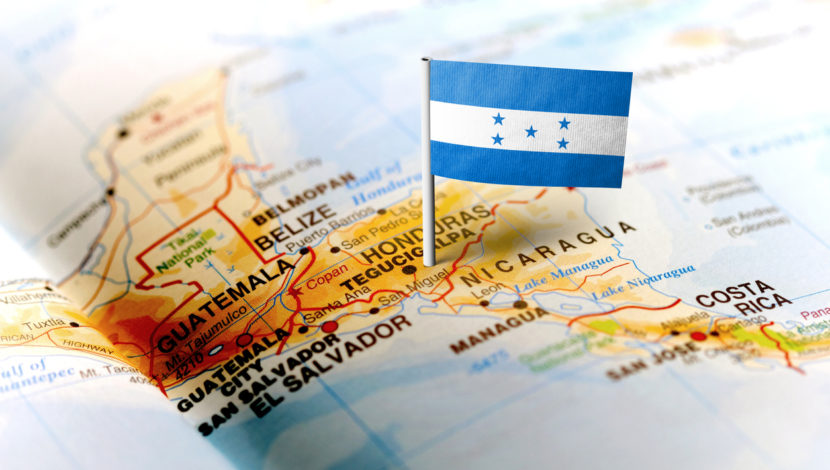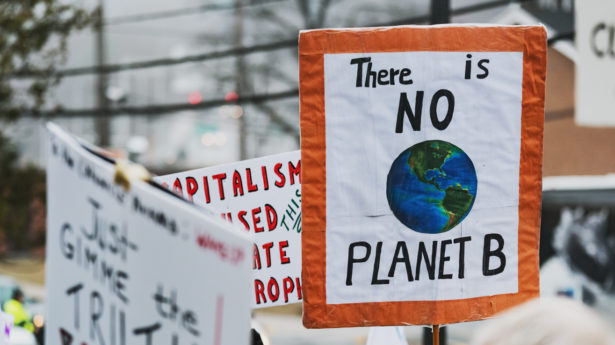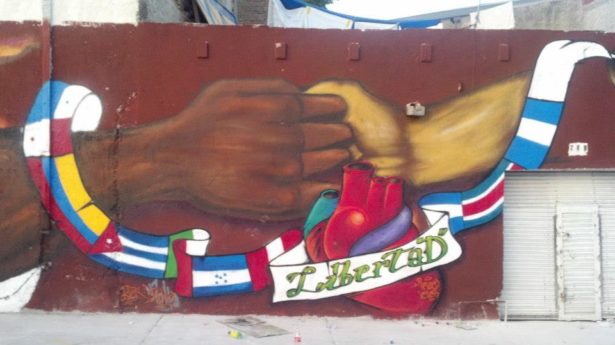The Unitarian Universalist Service Committee advances human rights through grassroots collaborations.
Biden and Congress Must Break Ties to Corrupt Rulers of Honduras

By on April 27, 2021
When Vice President Kamala Harris was tasked several weeks ago with finding diplomatic solutions to widespread forced migration from Central America, her mandate included the admirable goal of working to “combat corruption and strengthen the rule of law” in the region.
It is with some irony, therefore, that one of the first results of this quest is an agreement with the current leadership of Honduras—among other regional players—to mobilize troops to the country’s borders, in an apparent effort to block the progress north of Honduran refugees escaping precisely these conditions. This agreement comes despite the fact the reigning regime in Honduras, headed by National Party politician Juan Orlando Hernández, is among the worst sources of corruption, and one of the largest single threats to the rule of law, currently plaguing the region.
The Honduran president, known as “JOH” to Hondurans, has been credibly tied to narco-trafficking and political corruption involving some of the most notorious actors in the international drug trade. On March 30, 2021, his brother Tony Hernández was sentenced to life imprisonment by a U.S. court for facilitating the introduction of 185 tons of cocaine into the United States—much of it prepared in a secret lab and stamped with his own initials, “TH.”
Court filings by U.S. prosecutors in the Southern District of New York named JOH as a co-conspirator in this trafficking, stating that the Honduran president not only facilitated the movement and sale of cocaine, he also used its proceeds to finance his political campaigns and the elections of other members of the Honduran National Party. In one instance, he reportedly received a $1 million bribe from Joaquín Guzmán Loera, a.k.a. “El Chapo,” the notorious head of the Mexican Sinaloa cartel, and formed an alliance with the cartel to advance his political interests, according to the sentencing document prepared by U.S. federal prosecutors.
The result of these devil’s bargains was not only the movement of staggering quantities of cocaine through the region, but also the murder of several people and the general degradation and corruption of Honduran institutions and the rule of law. The sentencing document links the president’s brother directly to two murders, while also pointing to disturbing circumstances that, prosecutors note, “strongly support an inference” that others may have been killed in Honduras in order to interfere with his prosecution and/or to protect the Honduran president.
It may seem shocking that the White House is partnering with such actors in an ostensible effort to address “corruption,” at the same time as U.S. prosecutors have uncovered so much evidence that these men are themselves the sources of much of that corruption—and the violence and murder that flow from it.
This incongruity, though—while it may be dismaying—fits a familiar pattern in U.S.-Central American relations.
For this reason, it would come as no surprise to grassroots activists and human rights defenders in Honduras, including UUSC’s partners. They have been sounding the alarm for years about the corruption of the ruling regime in Honduras, only to see one U.S. administration after another abet that government’s crimes.
In 2009, the Obama administration enabled a violent coup in the Central American country, even after the parties involved clamped down on independent media and spirited from the country the democratically-elected president. U.S. authorities recognized and legitimated the regime that seized power, of which JOH’s administration is the successor. Joe Biden was serving at the time as vice president.
In 2017, U.S. authorities doubled-down on this pattern under the new administration of Donald Trump. In that year, JOH declared victory in an election that several international observers, including the Organization of American States and the European Union, condemned as fraudulent. (JOH had also previously used his powers as head of the Honduran national legislature to install loyalists to the country’s supreme court, enabling him to bypass the previous constitutional bar on seeking a second term.) The U.S. government once again legitimated an unlawful seizure of power, recognizing Hernández’s government and working in close collaboration with him ever since.
Faced with overwhelming and mounting evidence of JOH’s role in fueling corruption and human rights violations in the country, however, some U.S. lawmakers are trying to chart a different course. In February, eight U.S. senators introduced the Honduras Human Rights and Anti-Corruption Act of 2021. Among its many provisions, this bill would impose targeted sanctions on President Hernández for his role in facilitating corruption, while funding the work of UN human rights observers in Honduras to root out violence, corruption, and impunity in the Honduran government and institutions.
The bill would also make clear as a matter of law that the U.S. Congress recognizes and condemns the crimes Honduran authorities are committing against their own people—in particular human rights defenders who speak out against abuses. The bill’s text calls attention to the false imprisonment and harassment of environmental defenders from the Tocoa Municipal Committee for the Defense of Common and Public Assets, whose case UUSC has worked to highlight, as well as the enforced disappearance of four Afro-Indigenous Garífuna activists, and many other cases of damning human rights violations carried out with the apparent complicity of Honduran authorities.
This bill provides an important path forward for the U.S. government to start to repair some of the wrongs it has inflicted on Central America. For too long, U.S. authorities have aided and empowered corrupt actors who contribute to the violation and victimization of their own people—only to turn around and enlist these same actors (as Vice President Harris’s recently negotiated agreement appears to do) to intercept and block the escape of migrants and refugees fleeing these same crimes. Enough is enough. U.S. Congresspeople should pass this bill into law now, and cut off U.S. support to some of the worst actors in our shared region.
***
About UUSC: Guided by the belief that all people have inherent worth and dignity, UUSC advances human rights globally by partnering with affected communities who are confronting injustice, mobilizing to challenge oppressive systems, and inspiring and sustaining spiritually grounded activism for justice. We invite you to join us in this journey toward realizing a better future!
Photo Credit: iStock – Mark Rubens

